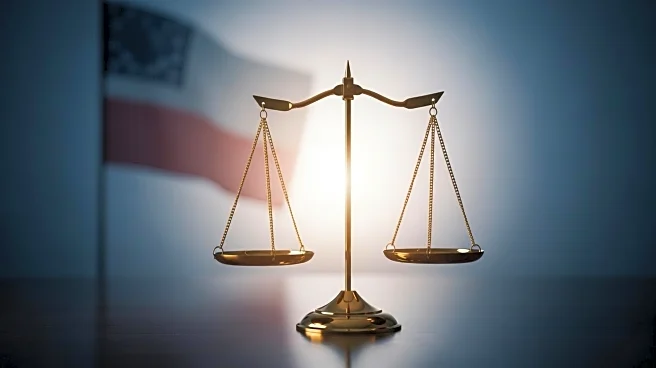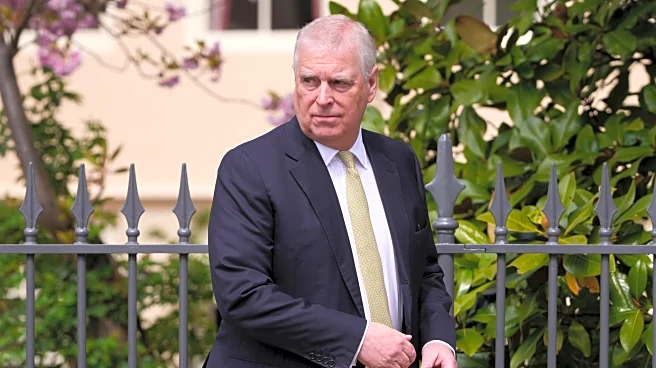What is the story about?
What's Happening?
President Trump has signed an executive order aimed at punishing individuals who burn the American flag. This move is part of a broader effort to address acts that are perceived as disrespectful to national symbols. The executive order has sparked discussions about the balance between free speech and national respect, as flag burning has been a contentious issue in the United States, often protected under the First Amendment as a form of free expression. The order is expected to face legal challenges, given the historical context of Supreme Court rulings that have protected flag burning as a form of symbolic speech.
Why It's Important?
The executive order could have significant implications for free speech rights in the United States. By targeting flag burning, the order challenges established legal precedents that protect such acts under the First Amendment. This development may lead to a reevaluation of the boundaries of free expression and could influence future legal interpretations of symbolic speech. The order also reflects ongoing cultural and political debates about patriotism and the limits of protest, potentially affecting public policy and civil liberties.
What's Next?
Legal challenges are anticipated as civil rights organizations and free speech advocates prepare to contest the executive order in court. The outcome of these challenges could set new legal precedents regarding the protection of symbolic speech. Additionally, the order may prompt legislative responses or further executive actions aimed at addressing perceived disrespect towards national symbols. Public and political reactions will likely shape the discourse around national identity and the role of protest in American society.















